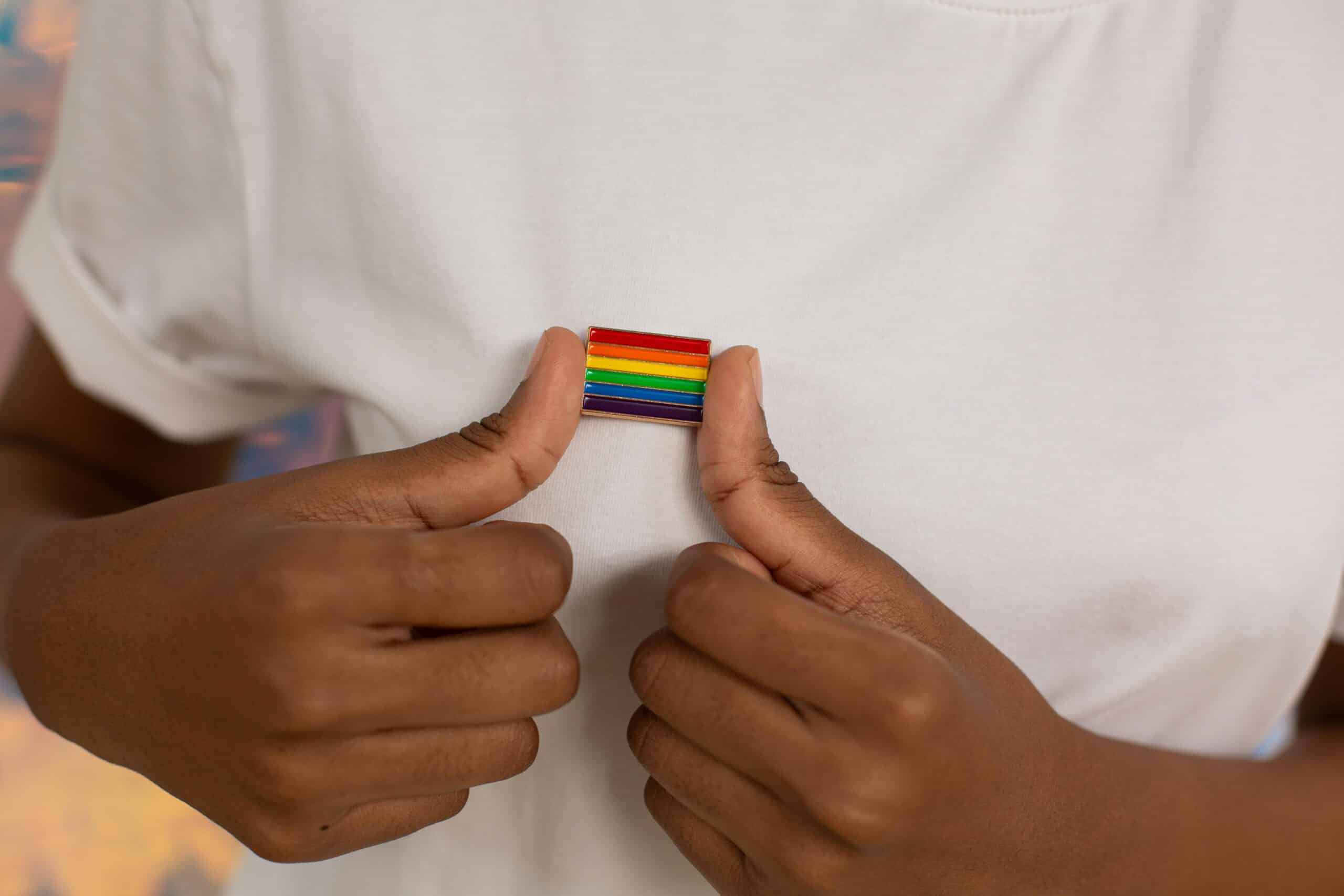Dating, Mental Health And Neurodivergence – Destigmatization & Tips

Normally, you ignore it or laugh it off. But, today it hurts. As someone who struggles with mental illness or is ND, remarks like this make you feel less than. They also communicate that people like you just aren’t desirable when it comes to dating. Love and romance are stressful enough without ableism. Your feelings are valid, but you don’t have to give up. Your mental health struggles shouldn’t exclude you from the dating pool.
Navigating Dating With Mental Illness
People who have mental illness find love. They date and they get married. They enjoy sex. That said, it’s also important to understand that your mental illness may impact your ability to relate to people, or even have any desire to pursue dating at times.
While no advice should ever replace what you and your treatment provider/care team decides works for you, this advice may help you get the dating experience you deserve.
Making The Dating Decision
Is dating in the cards for you right now? You may feel a lot of dread and pressure around that question. When you have an active dating life, you feel a sense of normalcy. When things are going well, you love human contact, and yeah, the sex is great too. But, you may also have a lot of trauma related to your dating life, and you know that dating when you’re in a bad place can be regrettable.
If you decide that you need to take a break from dating to preserve your mental health, that’s fine. It’s more than fine! That takes an understanding of yourself and can be the right decision for yourself. It’s also isolating. When you give up something that’s such a core part of life, it can be a painful reminder of what your mental illness takes from you.
Here are some tips that may help you make the right decision about dating, and feel better about the outcomes you experience.
No Decision is Permanent
Nothing you decide about dating right now has to be forever. You can always change your mind. All you’re doing right now is making a temporary choice based on where you’re at right now. If you decide to get out there and date, you can do that and stop whenever you want. Also, making the choice to take a break from dating is something you can commit to for any time period.
This Isn’t a Binary Choice
You have more than two options here. You don’t have to give up dating entirely or jump in with both feet. You can:
-
Stick to group dates so you feel less pressure
-
Reserve your energy by only dating a couple of times a month
-
Keep things casual and uncommitted
You can set boundaries when it comes to dating, and you can adjust those boundaries when you need to.
It’s Okay to Talk to Someone
You may not feel capable and confident when it comes to making decisions about your dating and sex life. You may struggle with the energy and “brain space” to deal with it. You may even question your own judgment. If so, it’s perfectly fine to lean on another person for help. A trusted friend or family member can give you an honest perspective. A professional counselor can help you safely navigate the decision-making process.
Remember that the most helpful people won’t tell you what you should do. Instead, they will help you make decisions that work best for you. It’s about empowerment, not giving up power to others!
You Can Put Unhelpful People on an Information Diet
-
No wonder you’re so sad! You need to get out there and date
-
You are in no way capable of making good decisions – why would you date now?
-
I don’t know why you can’t pick nice, normal people
-
Stop making it difficult! Just make the right decisions and you’ll be fine
People who say things like this usually have good intentions. But, that’s not nearly as important as the impact their words have. The problem is that they may not have the self-control or awareness to stop saying things that are unhelpful at best and harmful at worst. So, you have to take steps to keep them out of the loop. The best way to do that is to put unhelpful people on an information diet. The less they know, the fewer opinions they have, and that’s great for your mental health.
Talking to Your Partner About Your Mental Health
When and how should you talk to a new partner about your mental health? That’s a tough decision to make, and there’s no singular answer. Will you scare someone away if you mention it too soon? If you wait, will the other person feel misled?
When to Talk About Mental Health
There isn’t an ideal point in a relationship to talk about mental illness. That depends on your level of trust in this new person, how mental illness might impact the relationship, and where you see this relationship going.
Bringing up The Topic of Mental Illness
You don’t feel comfortable just blurting out that you’ve got a mental illness. So, how do you bring it up? Here are some scenarios that may help you approach the topic.
Mention Therapy
People go to therapy for many reasons. So, it’s easy to use that as a way to introduce the topic of your mental health into your dating relationship. It can be as simple as mentioning that you have a therapy appointment coming up. Just by doing that, you’ve opened up the topic and created an opportunity to see how they react to the idea of therapy.
Talk About it in The Context of Your Current Struggles
If you simply disclose a diagnosis, you may have to explain the details of what that means for you. Instead, you may feel more comfortable if you frame what you go through in a relatable way.
For example, you might say, “Yeah, I’m excited to spend the weekend with my parents. It’s been awhile. When I’m depressed I self-isolate quite a bit.”
Discuss Your Coping Strategies
If you’ve developed coping strategies to keep your mental health on track, let your partner know. They won’t misinterpret what’s happening. Even better, they will see your mental illness as something you proactively manage.
For example, “Don’t worry if I step out for a minute. Crowds make me feel a bit anxious and panicky. Fortunately, a little space and fresh air really help.”
Contextualize it When You Discuss Your Needs in The Relationship
It’s okay to ask for support in a relationship. The best approach is to be clear and direct. Tell your partner what you need. Do you need them to give you extra notice when planning dates? Do you prefer to avoid crowded places? Say so!
Bring up Mental Illness as a General Topic
You don’t have to talk about yourself to discuss mental illness. You can bring up a relevant event or news story. Express concern about the mental health of those involved or mention that the event might have been prevented with better mental health support.
This is a good approach early in a relationship. It allows you to see a potential partner’s attitudes towards mental illness.
Recognizing Relationship Red Flags
Is your dating situation making your mental health worse? Look for these red flags.
-
Your partner doesn’t know how to regulate their own emotions
-
They try to counsel or doctor you with unsolicited advice
-
You find yourself slipping back into unhealthy behaviors and patterns
-
They disrespect or ridicule your mental health boundaries
Being a Supportive Partner
The person you’re dating has disclosed their mental illness. First, this is a good thing. They trust you enough to share this about themselves and may see this relationship going somewhere.
At the same time, you might feel anxious and unsure of how to react or how their health will impact your relationship. Here are some tips to help you be a supportive partner while leaving them the responsibility of managing their own health.
-
Don’t assume that mental illness will make the relationship hard all of the time
-
Show understanding: Know your partner doesn’t want to feel depressed, anxious, or agitated
-
Don’t play nurse or babysitter and don’t run interference for the
-
Educate yourself – don’t make it their job to increase your understanding
-
Ask what you can do to support them
-
Don’t second guess their medications or doctor’s advice
-
Don’t make comparisons between them and other people with their condition
Final: Maintaining Good Mental Health While Dating
Your mental health is important, and even good relationships can challenge that. You don’t need to have a diagnosed condition to make your mental health a priority. Pay attention to your emotions and moods. Take time for self care. Finally, reevaluate any relationship that makes you feel bad.



